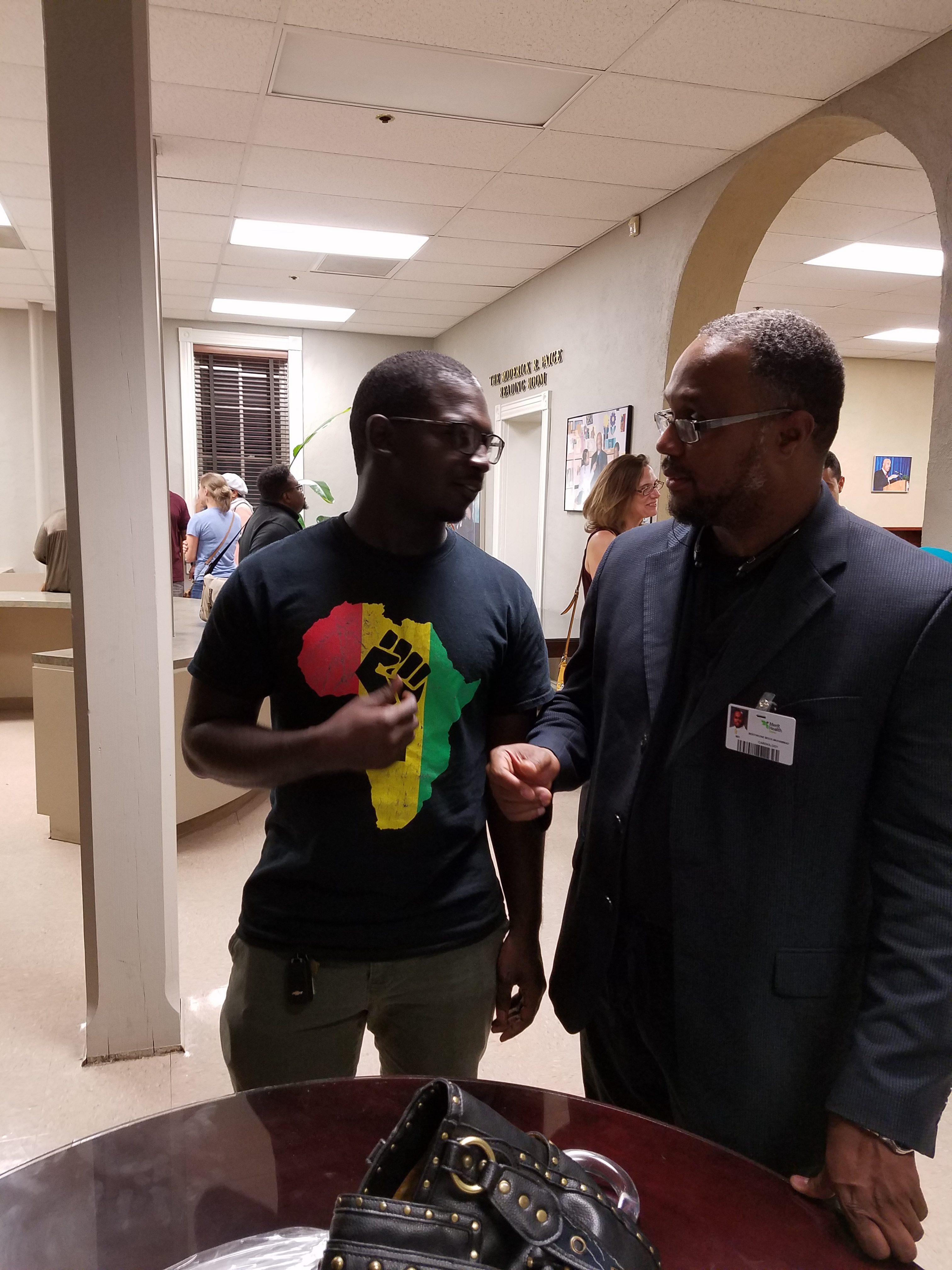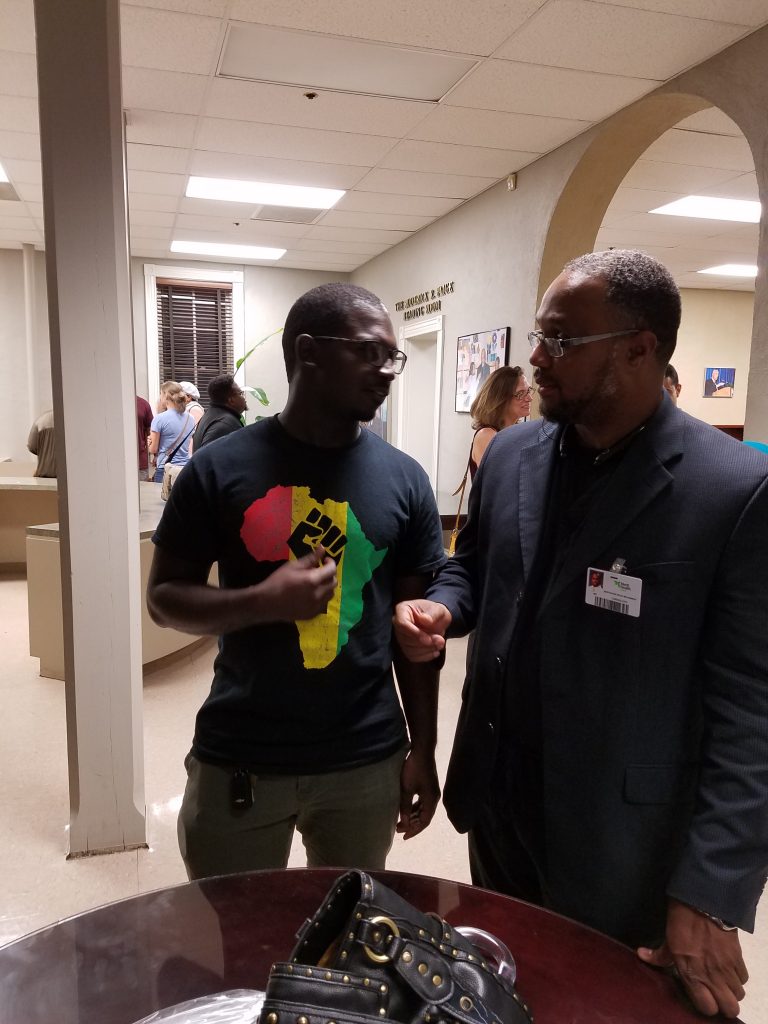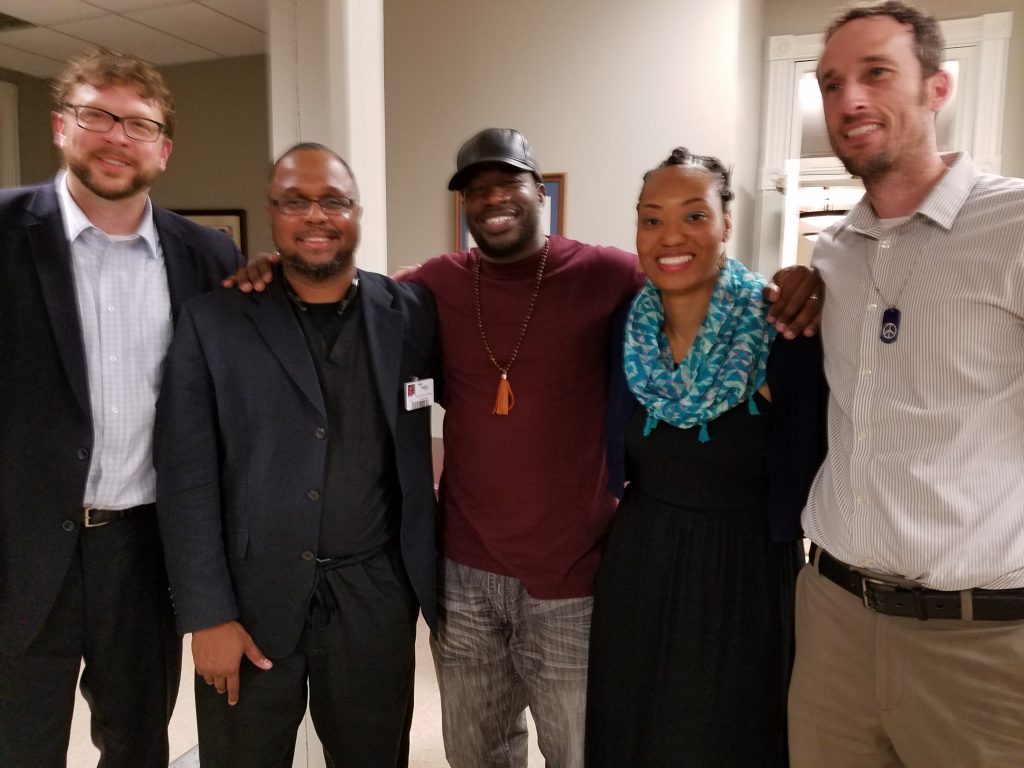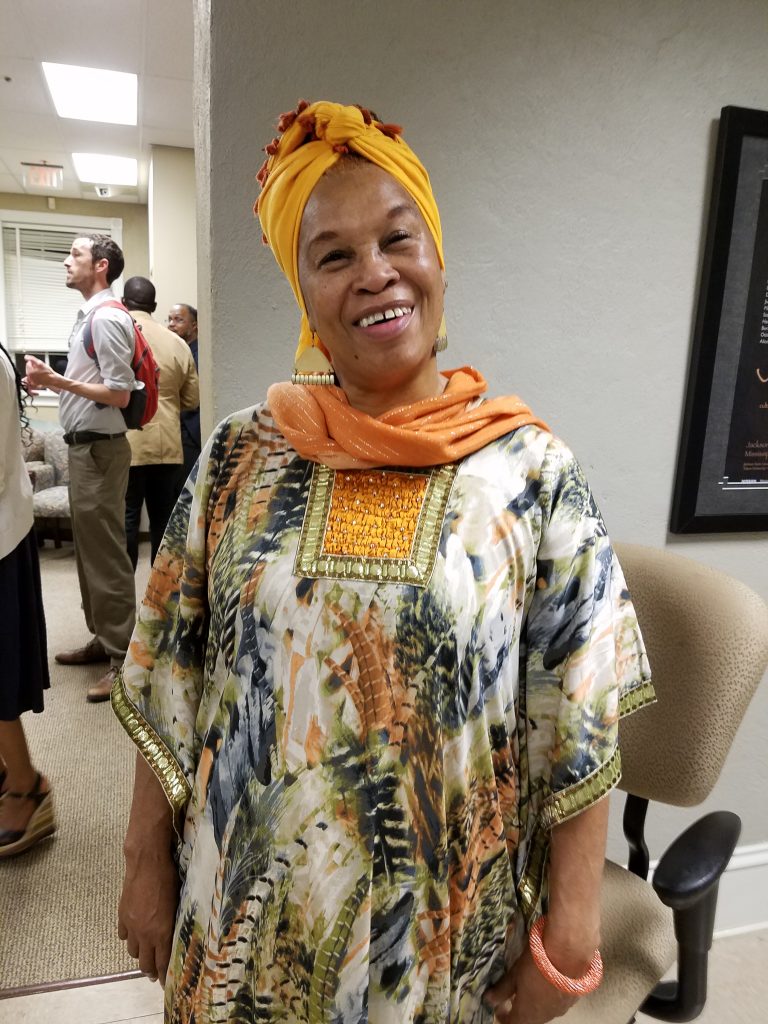
By Janice K. Neal-Vincent
Contributing Writer

Honoring Islamic Heritage Month, professionals sat at the table in The Margaret Walker Center in Ayer Hall at Jackson State University and tackled issues related to Islamophobia and anti-black violence April 20.
Among the panelists were Maryam Abdur-Rahmaan, education coordinator at the International Museum of Muslim Cultures; Jed Oppenheim, program officer at the W.K. Kellogg Foundation; Dr. Berthrone Mock-Muhammad, a Jackson cardiologist; and Robert Luckett, the director of MWC. Sakinah Abdur-Rashied, a JSU foreign languages instructor was the moderator.
Abdur-Rahmann shared myths about Islamic faith and religion. Some included: (1) Islamic faith is inferior to American values; (2) Islamic religion is one of hate; and (3) Muslims weren’t present when the civil rights movement occurred. The education coordinator concluded the following about these myths. America is a country replete with numerous faiths.
Despite their faiths, individuals practice American citizenry. Islamic religion practices love but speaks against society’s social ills. One third of the slaves who were brought to America were Muslim.
The reflective discussion shifted to the current movements in America that support the protection and rights of the oppressed and marginalized. In that vein discussants seemed to agree that all oppressed persons should ban together to defeat the American power structure.
“Anti-black violence has a long history in America. The Black Lives Matter Movement is a natural extension of the modern civil rights movement. The system of white power is rooted in violence,” noted Luckett.
Luckett continued, “Jim Crow comes in political, social and economic control, all about asserting power. When the Mississippi Constitution was created, every southern state adopted that same constitution. Voter registration is duplicated throughout the south. So the historic, systemic structure is to maintain power.”
Mock-Muhammad chimed in that violence and aggression may be imposed by things in the environment. “A violent person can have a nutritional or medical defect. So the first consideration would be are there things here that we can treat? Via hormones, we’re wired to be violent and wired to be nonviolent. Environmental influences are linked to education and spiritual encounters.”
Mock-Muhammad added that anti-black violence is linked to one’s self and community. In support of his claim, Mock-Muhammad referenced biblical scripture when he said, “The curse of Ham has led to misrepresentation of black lives. Internally, individuals do things to themselves. There’s a historical deficit of information lurking in America.”
On the other hand, the cardiologist declared: “The month of April is Islamic Heritage Month in Jackson, but Confederate White Month in Mississippi. So that says it all.”
Panelists and audience members agreed that education often plays school. If that school is designed for conformity, students are told they’re in school to get a job and told to not ask questions. When these things occur, students may not critically examine their surroundings. Conclusion of this matter is that the student who does not ask questions assumes an expected role. This results in the need to deconstruct such a pattern.
Emphasis was placed on the need to internalize racism and bigotry within the school system. Once they are recognized, the responsibility of those engaged in teaching is to counter against them.
Presider Abdur-Rashied reminded the crowd that constructivist theory allows the child to make sense out of his/her own reality. She said it is because of this that “We have to tackle the problem.”
Okolo Rashid, co-founder/board chair and director of Islamic Thought Institute at IMMC of Jackson, contended that making sense of reality moves beyond children to adults as well as all marginalized groups.
“A community must understand that there is just one God, one humanity. Many of the American ideas come from Mohammad who put different cultural groups together. There are two leaders representing inner dignity and outer consciousness – Martin Luther King Jr. and Elijah Mohammad must come together,” she stated.
Attendees were asked to assess the session. Community member Treshika Melvin commented: “I thought that each of the panelists provided a unique and informative perspective to the topic, and I definitely know that the discussion could have continued for hours. I hope that there will be future events to continue unpacking this topic, especially in terms of the intersectionality of Anti-black violence and Islamophobia. I think these conversations are critical in addressing our intertwined oppressions and identifying ways to transform the world around us.”
JSU alum Victor Nasir Terry responded, “My only concern was that the identities of black and Muslim were separated – leaving the entire community of black Muslims silenced and erased from the conversation. To really address anti-blackness and Islamophobia we must focus our efforts on the most vulnerable people within the Islamic Community, black Muslims.”
Concerns may be addressed to Margaret Walker Center at www.jsums.edu/margaretwalkercenter or call 601-979-3935.


PHOTOS BY JANICE NEAL-VINCENT

Be the first to comment